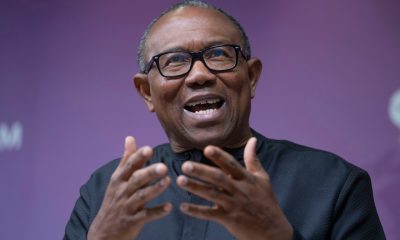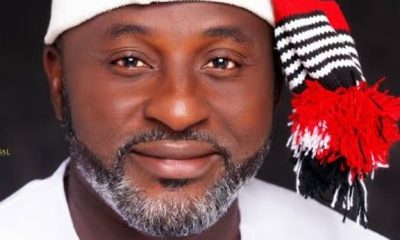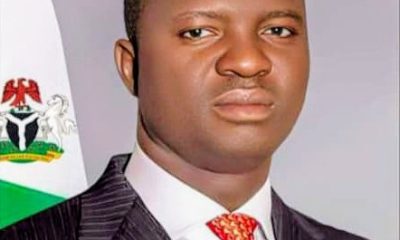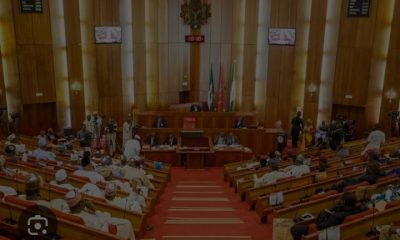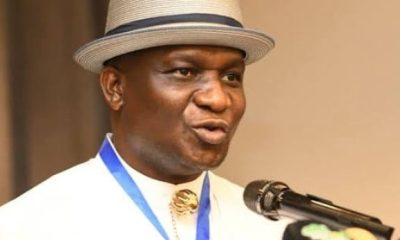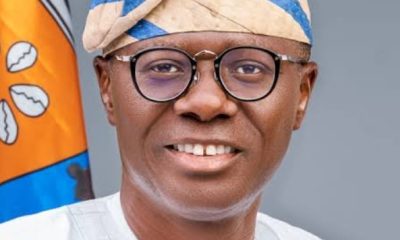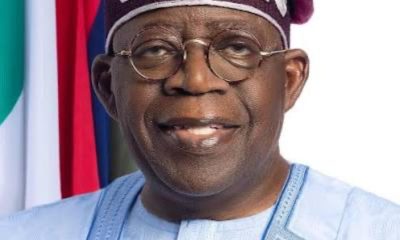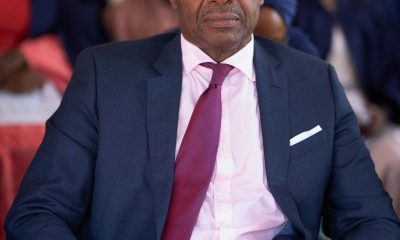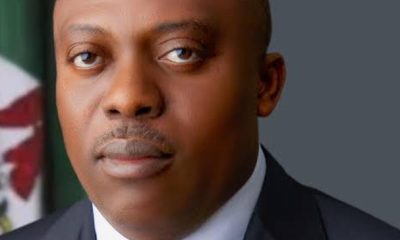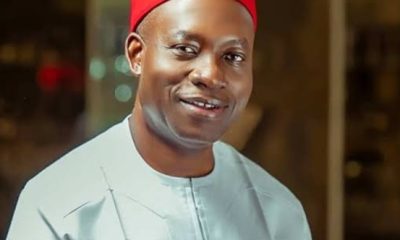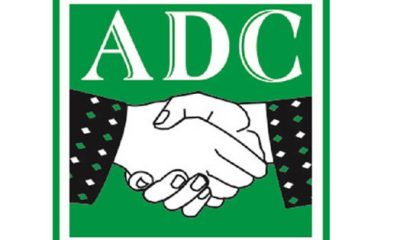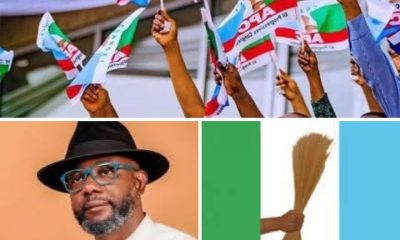Politics
Senator Patrick Abba Moro: ICON of Steadfast Leadership and Service
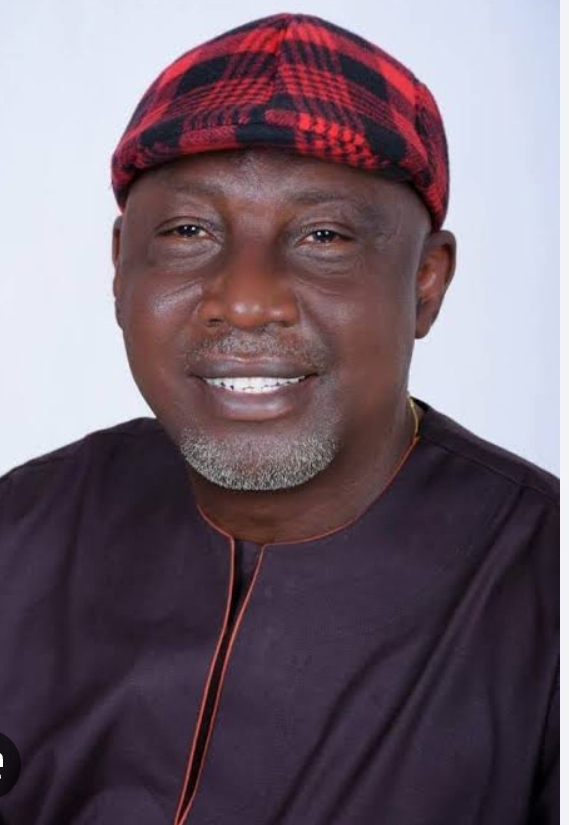
By Ignatius Okorocha
Senator Abba Patrick Moro, Minority Leader of Nigeria’s 10th Senate, stands as a seasoned politician and grassroots mobilizer whose legislative career has been defined by advocacy for education, civil service reform, and national development. Representing Benue South Senatorial District, Moro brings to the Red Chamber decades of administrative and political experience.
As Minority Leader of the 10th Senate, his political presence has not just been one of visibility, but of substance — a quiet but forceful dedication to principle, representation, and national stability. Today, he stands not merely as a legislator, but as an icon of purpose-driven governance.
Born on July 3, 1956, in Okpokwu Local Government Area of Benue State, Moro earned degrees in Political Science and Public Administration from the University of Lagos and Benue State University respectively. Before venturing fully into politics, he served as a lecturer and later became the Chairman of Okpokwu Local Government Area.
He gained national attention as Minister of Interior under President Goodluck Jonathan (2011–2015), where he oversaw immigration and internal security policy — a tenure marked by both reform efforts and controversy, particularly the 2014 Nigeria Immigration recruitment tragedy, which he has publicly addressed.
“We must learn from the past, not run from it. My commitment has always been to ensure transparency, justice, and institutional accountability,” Moro said during a Senate plenary in 2022.
A Journey Rooted in Service:
Senator Moro’s political journey is steeped in education and grassroots engagement. His early days as an educator and unionist foreshadowed a career built on advocacy. A former lecturer and union leader at the Benue State Polytechnic, Moro rose through the ranks with an unmistakable sense of purpose: using the power of ideas to shape policies that matter.
The Minority Leader with a Major Voice:
In the 10th Senate, Moro emerged as the Minority Leader at a time of political realignment and growing demands for transparency, inclusion, and reform. It is a role that requires dexterity — balancing loyalty to opposition principles with the broader interests of national progress.
Unlike many who posture with noise, Senator Moro has embraced this role with a measured approach. He does not seek the spotlight for spectacle but commands it through consistent advocacy for constitutionalism, equity, and regional development. Whether speaking on budgetary priorities, insecurity, or federal character in appointments, his voice has carried the weight of both wisdom and empathy.
A Champion for the Middle Belt and Beyond:
Beyond the Senate floor, Senator Moro remains a vital bridge between his Idoma-speaking constituents in Benue South and the broader Nigerian polity. His advocacy for the Middle Belt — a region often caught between the binary politics of North and South — reflects his understanding of Nigeria’s nuanced pluralism.
He has consistently called for increased federal presence in neglected communities, improved funding for education, and fairer revenue sharing. His interventions on rural development and the welfare of civil servants remain part of his legacy from his ministerial days.
Why He’s an ICON:
In the sometimes transactional terrain of Nigerian politics, Senator Patrick Abba Moro represents a different archetype: the public servant who listens more than he speaks, the politician who legislates not for applause but for posterity. He is an icon not because he has sought to be one, but because his consistency, humility, and loyalty to the Nigerian project have made him so.
At a time when young Nigerians are searching for leadership examples that reflect integrity and intellect, Senator Moro offers a blueprint. His career — marked by perseverance, steady growth, and thoughtful leadership — is a reminder that icons are not always the loudest voices in the room. Sometimes, they are the ones who speak with the clarity of purpose and the calm of conviction.
Legislative Track Record and Key Bills:
As a two-term senator, Moro has steadily built a reputation for taking bold positions on national issues and sponsoring people-oriented legislation. Some notable bills and motions include:
The Tertiary Education Reform Bill
Senator Moro sponsored a bill aimed at restructuring Nigeria’s tertiary education funding, calling for better access, improved infrastructure, and more equitable allocation of TETFund resources.
“Education is the bedrock of any society. Without strengthening our institutions, we’re simply building castles on sand,” he stated on the Senate floor in September 2023.
Bill for the Establishment of the Federal University of Agriculture, Ado Ekiti
Although out of his senatorial district, Senator Moro co-sponsored this bill to support regional education and boost agricultural research.
Constitutional Amendment for Local Government Autonomy
Moro has been a vocal supporter of local government autonomy, saying:
“The idea of federalism crumbles if the grassroots cannot breathe. Local governments must be free from the stranglehold of state executives.”
Motion on Insecurity in Benue and the Middle Belt
In early 2024, Moro raised a motion condemning persistent herder-farmer clashes and banditry in Benue. He called for an urgent review of Nigeria’s security architecture, demanding more federal presence and relief efforts for IDPs.
Conclusion:
Senator Abba Moro’s political journey — from the classroom to the council chamber, and now the Senate — reveals a man driven by conviction, albeit not without controversy. As Minority Leader, his voice resonates not just as a critic, but as a stakeholder in Nigeria’s fragile democratic project. His future legislative focus remains on electoral reform, security, education, and local governance.
Politics
Poverty Alleviation: Sanwo-Olu gifts over 1,000 vulnerable Lagosians ₦460 million
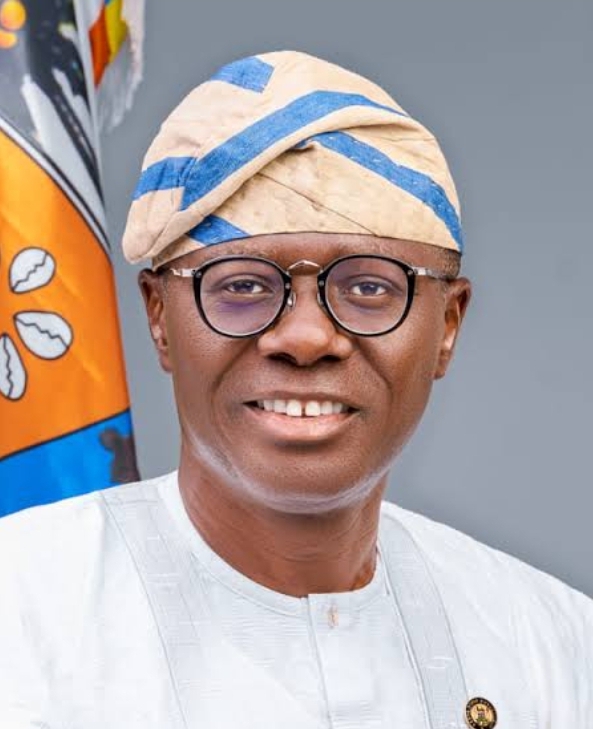
Poverty Alleviation: Sanwo-Olu gifts over 1,000 vulnerable Lagosians ₦460 million
By Our Correspondent
In his avowed determination to empower the vulnerable, the Lagos State Governor, Mr. Babajide Sanwo-Olu on Wednesday disbursed a total of ₦460 million, cheques to over 1,000 Lagosians.
Consequently, the disbursement which took place at Blue Roof, Alausa, Ikeja under EKO Cares Initiative was supervised by the Office of Political, Legislative and Civic Engagement.
Sanwo-Olu, who was represented by his Deputy Governor, Dr Obafemi Hamzat noted that the initiative has made a real difference in the lives of thousands of individuals within the State.
Sanwo-Olu disclosed that for this year, the sum of ₦1.6 billion has been set aside to assist an additional 2,850 beneficiaries.
Sanwo-Olu said, “Today is a day filled with joy — a day when the government reconnects with the people at their point of need. More than that, it is a moment that reaffirms the true essence of governance: to provide comfort, hope, and opportunities for those who need it the most.
“This presentation of cheques to over 1,000 vulnerable Lagosians is not just a ceremony; it is a celebration of compassion and our shared humanity. It serves as a reminder that progress is not solely about infrastructure or numbers, but about how deeply we care for one another. Through initiatives like this, we strengthen the social contract between the government and its citizens — a relationship built on trust, empathy, and inclusion.
“Today, we are disbursing a total of ₦460 million, and this is not the first time this year, nor will it be the last. As we move toward the end of the year, more beneficiaries will be receiving their cheques, as we keep extending our support to those who need it the most.
“So far, EKO Cares has made a real difference in the lives of over 8,100 individuals, while EKO Listens has lent a helping hand to more than 8,690 beneficiaries. In 2024 alone, we distributed ₦1.1 billion to 2,477 residents throughout the state. For this year, we have set aside ₦1.6 billion to assist an additional 2,850 beneficiaries — and these programs are still running, with even more residents ready to receive support,” the Governor stated.
While stressing that it is a commitment to making social intervention inclusive and impactful, Governor Sanwo-Olu added, “our strong belief that governance should directly touch lives — not from afar, but with genuine empathy and decisive action. Behind every household is a story filled with dreams, hard work, and sometimes challenges. It is our responsibility to ensure that these challenges don’t dictate their futures.
“Our administration is deeply in tune with the needs of our residents. That is why we have been rolling out a variety of social intervention programs that truly bring relief to families and communities across Lagos.
“One such initiative is the EKO Cares program — also known as Financial Assistance — which is the reason we are gathered here today. Launched in 2020, it aims to uplift vulnerable Lagosians by providing targeted support in healthcare, housing, education, and small business development.
“EKO Cares is making a real difference in the lives of thousands across our state. It is here to help residents tackle economic hurdles, foster inclusion and stability, and bring back hope and dignity. This initiative truly exemplifies what it means to have responsive and compassionate leadership, along with inclusive governance, as we continue our fight against poverty.”
Sanwo-Olu noted, “To our beneficiaries, today’s support is more than just financial aid; it is a seed of hope. Use it wisely. Let it ignite your next breakthrough, bolster your business, or bring peace to your home. The government can open doors, but it is your determination that keeps them wide open.”
The Special Adviser, Political, Legislative & Civic Engagement, Dr. Tajudeen Afolabi said, “Today’s event stands as a tangible expression of the inclusive governance principles embedded in the T.H.E.M.E.S + Agenda. It underscores Mr. Governor’s steadfast dedication to listening to the voices of our people, responding to their needs, and extending meaningful support-especially to those grappling with economic hardship or personal challenges that warrant financial intervention.”
Dr Afolabi added, “It is important to highlight that the mandate of the Office of Political, Legislative and Civic Engagement is to strengthen the harmonious relationship between the Executive and Legislative arms of Government and other political gladiators; as well as create and implement citizens’ engagement policies, where every citizen in the State, irrespective of creed, religious belief, social inclination and ethnic nationality feels secured, engaged and fulfilled.”
Politics
Constitution Review:Islamic group backs Senator Obiorah’s Proposal for Independent INEC
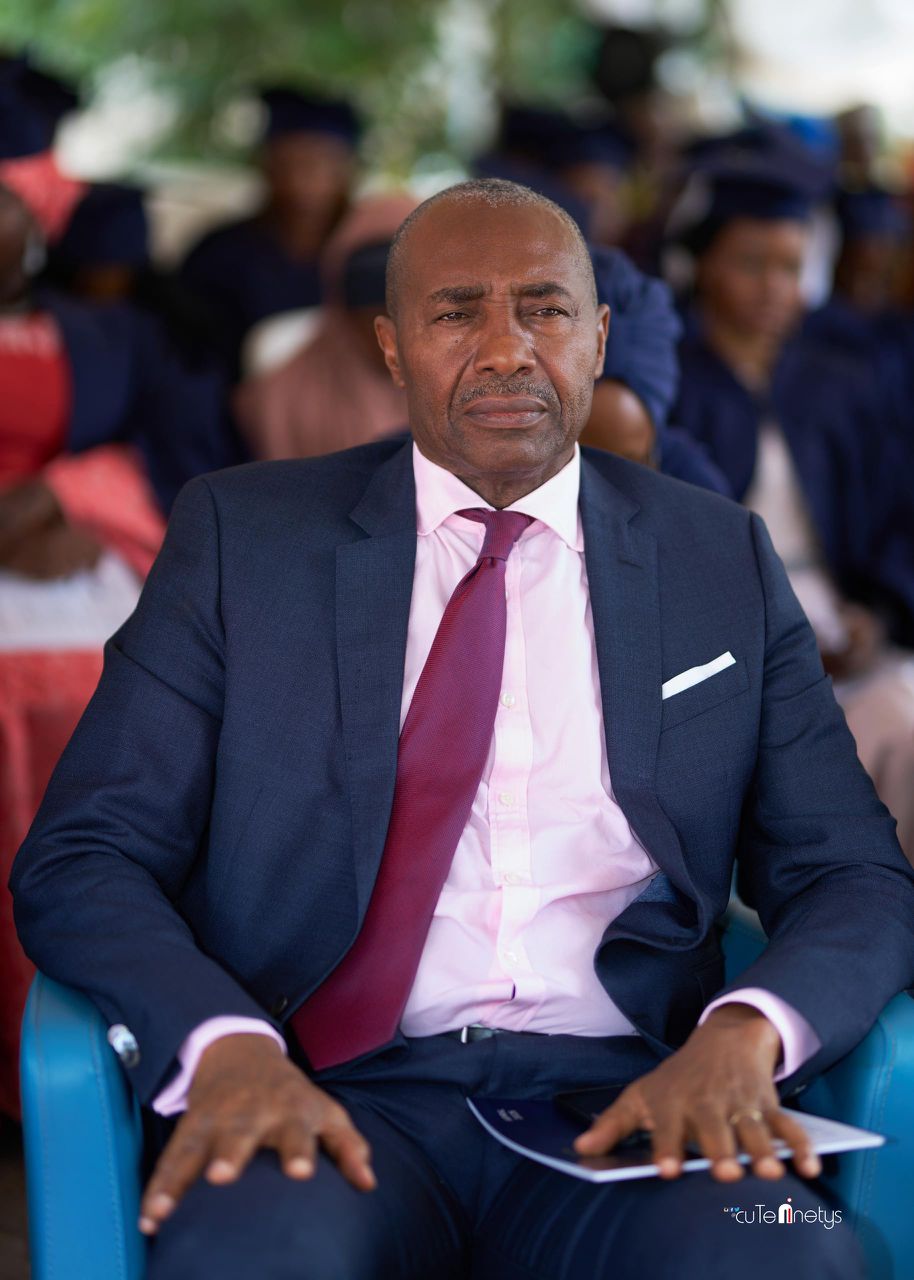
By George Mgbeleke
As National Assembly concludes review of the 1999 constitution, a faith-based and community development organization in Zaria, Kaduna State, Fityanatul Islam Gabari, has declared its full support for Senator Ikechukwu Obiorah’s proposal for the establishment of a truly Independent National Electoral Commission(INEC)in Nigeria.
The endorsement, announced at a press briefing in Kaduna, marks growing civil society backing for Obiorah’s push to reform Nigeria’s electoral framework and reduce political interference in the appointment of electoral officers.
Speaking during the briefing, the President of Fityanatul Islam Gabari, Mallam Lawal, said the organization’s decision followed a careful review of Senator Obiorah’s draft bill, which seeks to amend the 1999 Constitution to transfer the power of appointing electoral bodies from the President and State Governors to a neutral and independent institution.
“On behalf of Fityanatul Islam Gabari, Zaria, we formally express our endorsement and full support for Senator IkechukwuObiorah’s draft bill,” Lawal stated.
“We agree that credible elections cannot be achieved while those who contest elections also control the appointment of electoral officials.”
The endorsement follows a lecture delivered by Senator Obiorah in August to members of the Muslim Tertiary Students Association titled “Strengthening Democracy: The Philosophy of Elections and Nigeria’s Fake Democracy.” The lecture, which examined the structural weaknesses in Nigeria’s electoral process, appears to have galvanized support from religious and youth-based organizations.
Senator Obiorah, who submitted the private draft bill to the National Assembly in July, is proposing the creation of a restructured Independent National Electoral Commission (INEC) composed of 13 commissioners. Under the plan, six commissioners would be elected by major Nigerian labour and professional bodies, six nominated by the United Nations (UN), and one observer commissioner by Transparency International.
According to the group, this model would strengthen electoral integrity, minimize corruption, and ensure transparency in the use of electoral technology such as the Bimodal Voter Accreditation System (BVAS) and the INEC Result Viewing Portal (IReV).
The group also emphasized the importance of extending voting rights to Nigerians in the diaspora.
“We strongly believe that dishonest and manipulated elections are the root causes of poverty, bad governance, and underdevelopment,” Lawal said.
“This reform, if enacted, will help restore confidence in our democracy and ensure that power truly returns to the people.”
The organization further defended the inclusion of international partners such as the United Nations, noting that the UN and its agencies including UNDP, UNICEF, WHO, and FAO have been longstanding partners in Nigeria’s development and governance processes.
“It is therefore appropriate that they contribute to strengthening our democratic institutions,” Lawal added.
Similarly, the National Muslim Youth Association, an alumni body of the Muslim Tertiary Students Association, sometimelast month also endorsed the bill, describing it as a necessary step toward achieving credible elections and good governance.
The group urged the National Assembly, State Houses of Assembly, and the Presidency to give due consideration to Senator Obiorah’s proposal and expedite its passage.
“The success of this bill will mark a turning point in our political evolution,” the group said, “and reaffirm the belief that democracy must be anchored on fairness, accountability, and the will of the people.
Politics
Fubara hails progress of work at Trans-Kalabari road • Inspects key project •observes 75% of critical piling job completed

By Magnus Chukwudi, Port Harcourt
Rivers State Governor, Sir Siminalayi Fubara, has expressed satisfaction with the level of progress recorded on the ongoing Trans-Kalabari Road project, revealing that about 75 percent of the critical piling work has been completed.
Governor Fubara made this known on Monday while addressing journalists after an on-the-spot inspection of the 12.5-kilometre road project, which will connect the state capital to several Kalabari communities across the sea.
The Governor rode on a boat from a jetty at Rumuolumeni in Obio/Akpor Local Government Area through the rivers and creeks on the project route during the inspection.
The project was awarded to Lubrik Construction Company Limited, on May 15, 2024, with an initial 32-month completion timeline.
The Governor said the visit was aimed at verifying reports from the Ministry of Works regarding the project’s advancement. He commended the contractors for their dedication, and described the progress as “a true reflection of hard work and commitment to excellence.”
“The first phase of the project takes us to Bakana, and features four major river-crossing bridges and nearly five deck-on-pile structures. The terrain is difficult, and the engineering work required is complex. But to the glory of God, I can confirm that the reports I’ve been receiving are accurate. Almost 75% of the piling job, which is the most critical part of the project, has been achieved,” Governor Fubara said.
He emphasised that the Trans-Kalabari Road is one of the most technically demanding infrastructure projects in the state due to its challenging marine terrain but reaffirmed his administration’s resolve to deliver it on schedule.
Governor Fubara highlighted the strategic importance of the road in connecting the Kalabari Kingdom to Port Harcourt, and stimulating economic growth across riverine communities.
“This is a key project that will turn around the lives of the Kalabari people immediately it is concluded. By the grace of God, in the next six months, if we return here for inspection, we might be driving across the bridge,” he said.
Governor Fubara assured Rivers people that his administration remains focused on delivering transformative infrastructure projects that will improve lives and bring lasting development to rural communities.
“We have made a promise to our people to embark on projects that will change lives and bring development, and this is a testament to that commitment,” he added. ###.
-

 Business & Economy2 months ago
Business & Economy2 months agoPC-NCG Issues Disclaimer on Purported Nigerian Coast Guard National Orientation Exercise In Anambra State
-

 Entertainment1 year ago
Entertainment1 year agoJubilation galore as Parishioners of CKC Kurudu celebrate their cultural heritage ….FG should exploit our Cultural heritage to unite Nigerians-Rev Fr Dim
-

 Law & Crime5 months ago
Law & Crime5 months agoICPC pledges to collaborate with FIDA to end Sex for Marks in tertiary institutions
-

 General News1 year ago
General News1 year agoCelebration galore as UDA Successfully Elected New Exco ……I will digitalize processes that will raise UDA to greater height -Comr. Okejiri
-

 General News1 year ago
General News1 year agoReps hold public hearing on FMC Ugwuaji Awkunanaw
-

 Law & Crime4 months ago
Law & Crime4 months agoLegal practitioner raises alarm over threat to his life by CSP Muhammed Abdulkareem
-

 General News1 year ago
General News1 year agoKugbo Hill Tragedy: Trailer Crushes Car, Kills Four and Injures Several Others in Abuja
-
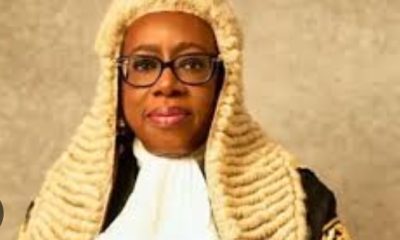
 Uncategorized9 months ago
Uncategorized9 months agoBenue govt drags NDIC to Federal High Court over illegal sell of shares …Demands N2.6billion damages


